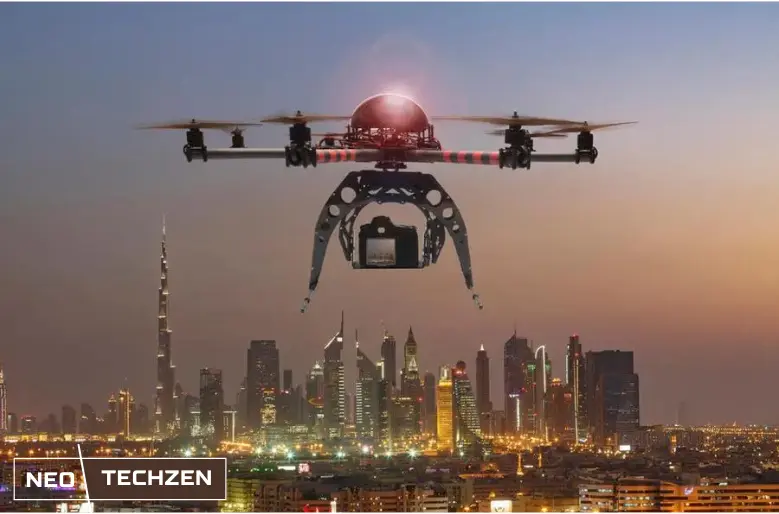The UAE (United Arab Emirates) must revolutionize the secular tradition of the Moon Vision, implementing AI-powered drones to observe the increasing moon for Eid Al-Fitr 2025. This innovative initiative combines modern technology with Islamic traditions, increasing accuracy and efficiency in lunar calendar determination.
Table of Contents
A World-First Initiative
The United Arab Emirates Council for Sharia Fatwa has announced that AI-equipped drones will be used to see the moon, making the United Arab Emirates the first country to adopt this technology. This innovation emphasizes the country’s commitment to technological leadership, respecting Islamic practices. Drones are designed to complement traditional methods, including naked-eye observations and telescope-based sightings conducted by Islamic scholars and astronomers.
How AI Drones Work
Drones are equipped with advanced resources that differentiate them from traditional moon vision methods:
- High-Precision Cameras: These cameras capture high-resolution images of the moon, ensuring better visibility, even under challenging atmospheric conditions.
- AI Algorithms: Drones use sophisticated machine learning models to filter atmospheric distortions and improve the accuracy of lunar observations.
- Real-Time Data Transmission: Data and images collected by the drones are instantly transmitted to centralized observatories to be checked by Moon Vision Committees.
- Astronomical Calculations: Drones work in coordination with accurate astronomical calculations to locate the position of the crescent moon.
Impact and Significance
Faster Decision-Making
Real-time data provided by AI drones allow authorities to confirm the beginning of EID AL-Fitr faster, reducing uncertainties and ensuring a unified announcement in the United Arab Emirates.
Global Influence
This pioneering effort is expected to inspire other Islamic nations to adopt similar technologies by establishing a new standard to see the moon around the world.
Technological Leadership
The United Arab Emirates consistently demonstrated their leadership in artificial intelligence. From the appointment of the First Minister of State for AI in 2017 to the launch of Falcon’s Generative AI model in 2023, this initiative further cemented its position as an innovative global leader.
Preserving Tradition While Embracing Innovation
While the use of AI drones represents a significant technological advancement, traditional practices remain whole. The Fatwa Council of the United Arab Emirates continues to encourage Muslims to observe the crescent moon with their naked eyes or through telescopes. This harmonious integration of ancient and new methods reflects a deep respect for Islamic teachings, leveraging modern tools.
Eid Al Fitr 2025: Key Dates
- Muslims in the United Arab Emirates were invited to observe the Moon Shawwal Crescent on Saturday, March 29, 2025.
- Astronomical calculations suggest that seeing the growth on this date would be impossible as it will be defined before sunset.
- Consequently, EID AL-Fitr is due to fall on Monday, March 31, with Sunday, March 30, marking the last day of Ramadan.
A Vision for the Future
By combining artificial intelligence with traditional moon vision practices, the United Arab Emirates is creating a model that balances innovation with cultural heritage. The use of AI-powered drones not only ensures precision but also defines a precedent for future advances in Islamic astronomy. As this initiative unfolds, it promises to redefine how lunar calendars are determined in preserving the spiritual essence of the celebrations of Ramadan and EID.
Never miss an update! Follow our WhatsApp Channel for exclusive News and Blogs.
